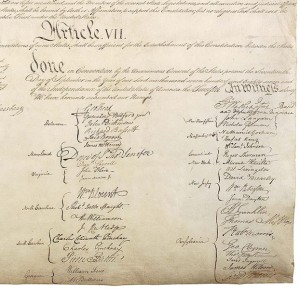Case briefs for law students, lawyers, and others researching case law. I created many of these briefs in law school and periodically update them from time to time. My goal has been to build a one stop resource center for law students!
Learn Legal and Business English From a Pro!
Learn legal and business English:
Phoenix on Preply - MA TESOL / JD / CELTA / 7+ Years Experience
Wednesday, November 7, 2012
Lochner v. New York case brief
Lochner v. New York
198 U.S. 45, 25 S. Ct. 539, 49 L. Ed. 937 (1905).
FACTS
-The Bakeshop Act was a New York state labor law that prohibited bakery employees from working for more than 60 hours/week or 10 hours/day.
-Lochner permitted an employee to work in his bakery for more than 60 hours in one week and, as a result, was convicted of his second offense and fined.
-Lochner appealed his conviction on the grounds that the law violated his freedom to contract under the Due Process Clause of the Fourteenth Amendment.
ISSUE
-What is the test for determining whether legislation which seeks to impose restrictions upon a person’s general right to make a contract in relation to his business is or is not valid under the Due Process Clause of the Fourteenth Amendment?
RULES
-The court must determine whether the legislation is a fair, reasonable and appropriate exercise of the police power of the State, or if the legislation is an unreasonable, unnecessary and arbitrary interference with the right of the individual to enter into a contract related to his business.
-A law which affects freedom of contract is unconstitutional if it is not reasonably related to a legitimate purpose of protecting public health.
-Before an act can be held to be valid which interferes with the general right of an individual to contract in relation to his own labor, the act must have a direct relation to the health and welfare of the employee, as a means to an end, and the end itself must be legitimate and appropriate.
APPLICATION
-The general right to make a contract in relation to one’s business is an individual liberty that is protected by the Fourteenth Amendment (Allgeyer v. Louisiana).
-The states’ police powers, however, empower the states to prevent individuals from making certain kinds of contracts.
-The Fourteenth Amendment does not prohibit a state from prohibiting a contract if the state has the right to do so through the legitimate exercise of its police power.
HOLDING
-In this case there was no reasonable ground for interfering with the right of free contract by determining a baker’s hours of labor.
-Under such circumstances, the freedom of master and employee to contract with each other in relation to their employment cannot be prohibited or interfered with without violating the U.S. Constitution.
---
Interested in learning how to get the top grades in your law school classes? Want to learn how to study smarter than your competition? Interested in transferring to a high ranked school?
Subscribe to:
Post Comments (Atom)
-
I can help you land in the top 10% of your law school class. Imagine, how your life would be different if you were in the top 10% o...
-
Case Brief: Brisboy v. Fireboard Paper Products Corporation Court: Michigan Supreme Court Citation: 429 Mich. 540, 418 N.W.2d 650 (1988) D...
-
https://www.pexels.com/photo/coworkers-talking-outside-4427818/ Over the last couple of decades, the face of legal marketing has changed a l...



No comments:
Post a Comment